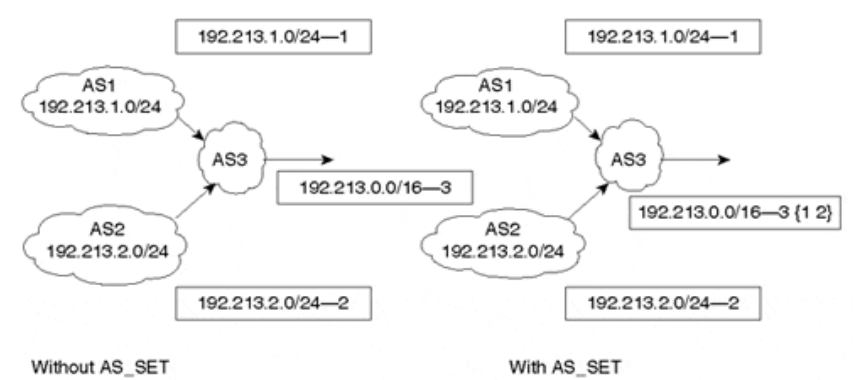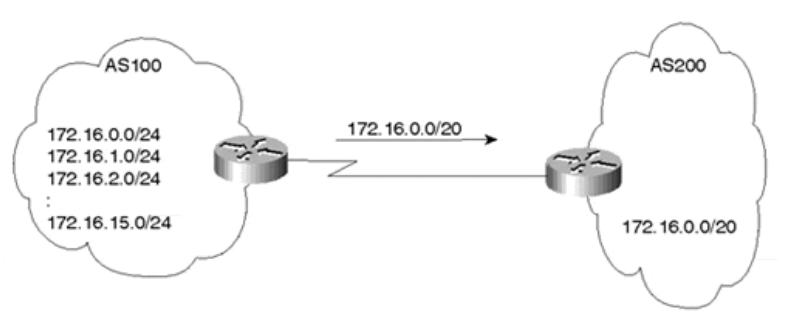Aggregation applies to routes that exist in the BGP routing table. This is in contrast to the network command, discussed earlier in this chapter, which applies to routes that exist in the IP routing table. Aggregation can be performed if at least one more-specific route of the aggregate exists in the BGP routing table. Before we go to the detailed aggregation scenarios, talk about the aggregation little bit more.
The ATOMIC_AGGREGATE Attribute
Route aggregation causes a loss of information because the aggregate is coming from different sources that have different attributes. The ATOMIC_AGGREGATE attribute is a well-known discretionary attribute (Type Code 6) that gets set as an indication of information loss. Basically, if a system propagates an aggregate that causes loss of information, it is required to attach the ATOMIC_AGGREGATE attribute to the route.
The ATOMIC_AGGREGATE should not be set when the aggregate carries some extra information that indicates from where the aggregated information came. An example is an aggregate with the AS_SET parameter. An aggregate that carries the set of ASs that form the aggregate is not required to attach the ATOMIC_AGGREGATE attribute.
AS_PATH and Route Aggregation Issues
A drawback of route aggregation is the loss of granularity that exists in the specific routes that form the aggregate. For example, the AS_PATH information that exists in multiple routes will be lost when these routes are summarized into a single advertisement. This could lead to routing loops, because a route that has passed through an AS might be accepted by the same AS as a new route. In order to avoid this unwanted behavior, BGP defines another type of AS_PATH object called an AS_SET, where the ASs are listed in an unordered set. This set includes the ASs that a route has traversed. Aggregates carrying the AS_SET information would have a collective set of the attributes that form the individual routes they summarize. How it will look like can be seen in the figure below:
Specifying the AS_SET parameter before an aggregate-address statement will automatically generate an AS_SET associated with the aggregate.
Loss of Information Inside Aggregates
Aggregation causes loss of information because the attributes of individual routes that form the aggregate will be lost. As already discussed in this chapter, BGP defines an AS_SET, which is a mathematical set consisting of all elements contained in all paths that are being summarized. Examples of such elements are the AS_PATH and community attributes. Using AS_SET with the aggregate will cause additional route instabilities due to the fact that changes in the attributes of the individual routes being summarized will now translate into changes of the aggregate itself and will cause the aggregate to be constantly withdrawn and updated.
Aggregate and suppress the more specific routes
This approach is used when there is no obvious benefit of sending the more specific routes.
Aggregate and send the more specific routes in same time
When you want to send to NAP the aggregate prefix, however to your neighbor AS specific routes because you want to influence the routing, you may end up with this type of scenario. You would accomplish this if you set the specific prefixes with no-export community attribute.


